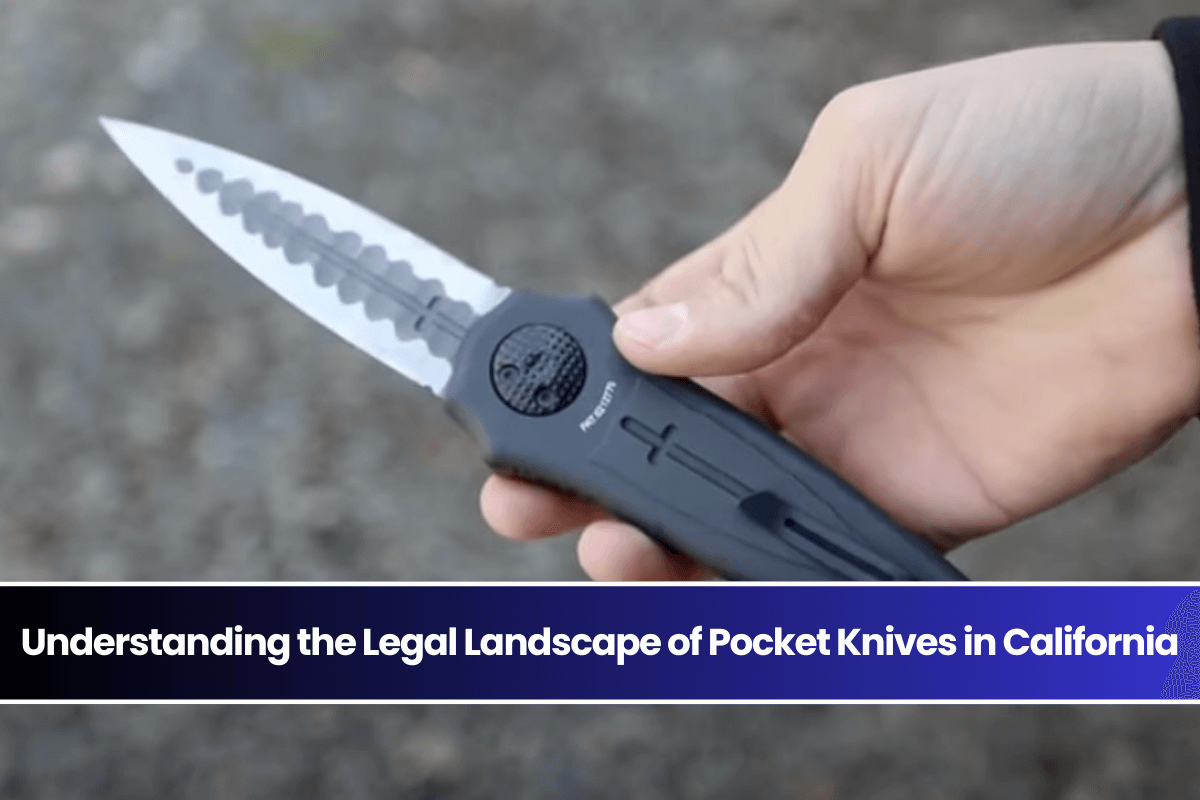Understanding the legal landscape of pocket knives in California is essential for both residents and visitors to ensure compliance with state laws. California has specific regulations governing the possession and carrying of different types of knives, including pocket knives. Here’s a detailed overview of these laws.
Types of Knives in California
California law categorizes knives into several types, each with distinct regulations:
- Folding Knives: Commonly referred to as pocket knives, these are legal to carry as long as they are closed. There are no specific restrictions on the blade length when the knife is folded. However, once opened, different rules apply.
- Fixed-Blade Knives: These include dirks and daggers, which must be carried openly in a sheath. Concealed carrying of fixed-blade knives is illegal and can lead to misdemeanor or felony charges.
- Switchblades: Defined as knives that open automatically with a button or mechanism, switchblades with blades longer than two inches are illegal to carry in public.
Legal Carrying of Pocket Knives
Folding Knives
- Carrying Closed: Folding knives can be carried concealed as long as they remain closed and are not used in a threatening manner. This includes common types like Swiss Army knives and box cutters.
- Open Carry: If a folding knife is opened, it must be carried openly. This means that once taken out for use, it should be visible to others.
Fixed-Blade Knives
- Open Carry Requirement: Fixed-blade knives must always be carried openly in a sheath suspended from the waist. Concealed carrying of these types is illegal and can lead to serious penalties.
Switchblade Restrictions
- Switchblades are prohibited if their blade length exceeds two inches. Carrying any switchblade with a longer blade is considered illegal, regardless of whether it is concealed or openly displayed.
Legal Implications
Violating California’s knife laws can lead to serious consequences:
- Misdemeanor Charges: Carrying concealed dirks or daggers can result in misdemeanor charges, which may include fines and potential jail time.
- Felony Charges: In certain cases, such as repeated offenses or possession of illegal knives on school grounds, charges can escalate to felonies.
Knife-Free Zones
California law also designates certain areas where knife possession is strictly regulated:
- Public Buildings and Schools: Specific restrictions apply to carrying knives in public buildings and schools. For instance, fixed-blade knives longer than four inches are prohibited in public buildings, while the limit drops to two-and-a-half inches at schools.
Conclusion
In summary, California’s laws regarding pocket knives emphasize the importance of understanding how different types of knives can be legally carried. Folding knives are permissible when closed and may be carried concealed; however, once opened, they must be visible.
Fixed-blade knives require open carry at all times, while switchblades with blades longer than two inches are prohibited altogether.
Awareness of these regulations is crucial for anyone carrying a knife in California to avoid legal repercussions. For specific situations or further clarification, consulting with a legal professional familiar with California’s knife laws is advisable.
Sources
- https://www.ceclaw.net/california-criminal-law/knife-laws/
- https://tkellknives.com/is-it-legal-to-carry-a-knife-in-california-know-the-law/
- https://www.akti.org/state-knife-laws/california/
- https://www.aerlawgroup.com/california-knife-laws/
- https://www.shouselaw.com/ca/defense/knife-laws/
